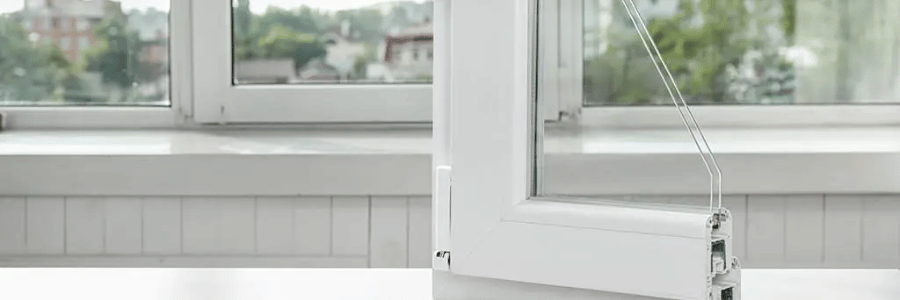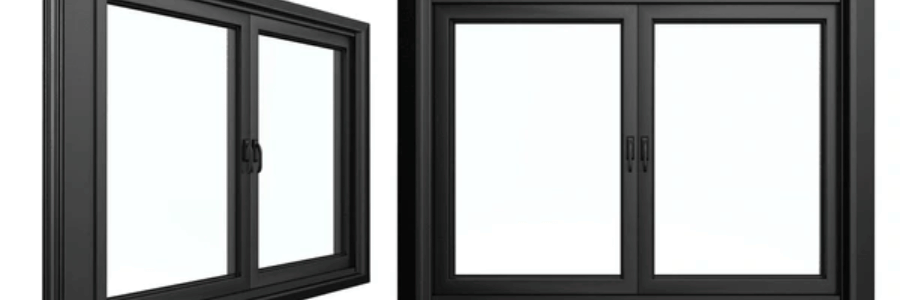When it comes to selecting windows for your home, the frame material is just as important as the glass. Window frames not only influence the aesthetics of your home but also play a key role in the durability, energy efficiency, and overall performance of your windows. With various frame materials available, it’s essential to choose one that suits both your style preferences and your long-term needs. Here’s a guide to help you choose the right window frame material for durability and style.
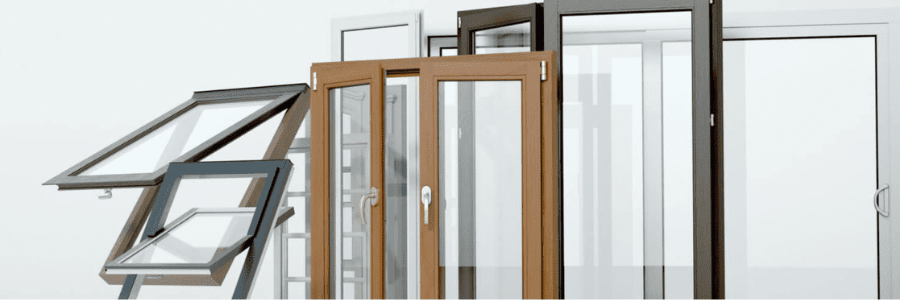
Vinyl Frames: Affordable, Low Maintenance, and Energy Efficient
Vinyl window frames are a popular choice due to their affordability, energy efficiency, and minimal maintenance requirements. Made from PVC (polyvinyl chloride), vinyl frames are resistant to moisture, won’t warp, and don’t need to be painted, making them a low-maintenance option.
Durability: Vinyl frames are highly durable, as they are resistant to weather elements like rain, snow, and intense sun exposure. They won’t rot or corrode over time, and their color is consistent throughout the frame, so they won’t peel or fade.
Energy Efficiency: Vinyl frames provide excellent insulation due to their low thermal conductivity. Many vinyl windows are filled with foam insulation, which helps prevent heat loss and improves energy efficiency. This makes them an ideal choice for homes in both cold and hot climates.
Style: Vinyl frames come in various colors and finishes, allowing you to match them with the style of your home. While they may not offer the same range of designs as wood or aluminum frames, modern vinyl frames are sleek and available in various styles, from traditional to contemporary.
Wood Frames: Timeless Elegance and Insulation
Wood window frames exude classic charm and sophistication, making them an excellent choice for homeowners who value traditional aesthetics and superior insulation properties. They are often preferred for older homes or those with historic character.
Durability: While wood frames are highly durable when properly maintained, they do require more care than other materials. Wood can warp, rot, or crack if exposed to moisture for extended periods. To prevent this, wood frames need to be sealed, stained, or painted regularly. However, with the right care, wood frames can last for many years.
Energy Efficiency: Wood is a natural insulator, meaning it does an excellent job at minimizing heat transfer. Wood frames can help keep your home comfortable by improving energy efficiency, especially when paired with double-glazed or Low-E glass.
Style: Wood frames offer timeless beauty and a warm, natural look. They can be easily customized with different stains or paints to match your home’s décor. Additionally, wood frames can be crafted into various styles, including classic, rustic, and contemporary designs.
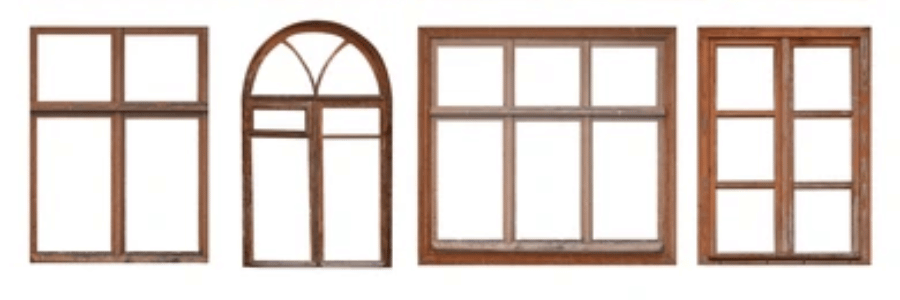
Fiberglass Frames: Strong, Low Maintenance, and Weather-Resistant
Fiberglass window frames are a newer material that combines the strength of metal with the insulating properties of vinyl. These frames are made from glass fibers and resin, making them incredibly strong, energy-efficient, and low maintenance.
Durability: Fiberglass frames are one of the most durable materials available. They are resistant to warping, cracking, or swelling and can withstand extreme temperatures without deteriorating. Unlike wood, fiberglass frames are immune to rot and insect damage, and they can last for decades with minimal upkeep.
Energy Efficiency: Fiberglass frames offer superior energy efficiency, as they are highly resistant to thermal transfer. Many fiberglass frames are filled with foam insulation, further enhancing their insulating properties. This makes them ideal for homes in extreme climates, whether hot or cold.
Style: Fiberglass frames offer a clean, modern look that suits a variety of home styles. They come in a variety of colors and finishes, and their surface can be painted or customized to match your home’s exterior. Fiberglass frames also have a narrower profile, allowing for larger glass panes and more natural light.
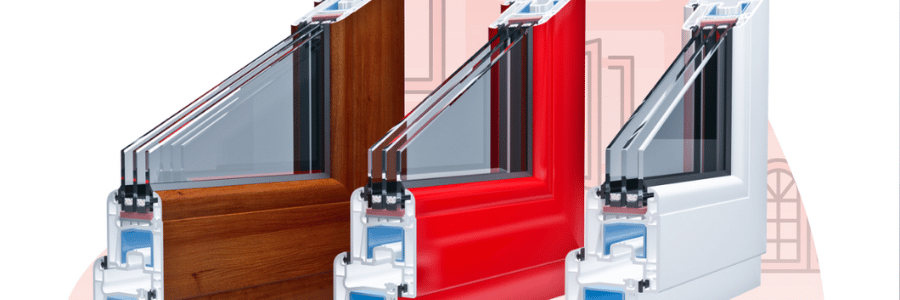
Aluminum Frames: Sleek, Modern, and Strong
Aluminum window frames are known for their sleek, modern appearance and strength. They are often used in commercial buildings and modern residential homes due to their clean lines and minimalistic design.
Durability: Aluminum frames are incredibly strong and can support larger panes of glass without warping or bending. They are resistant to corrosion, but they can conduct heat, which may compromise energy efficiency. To mitigate this, many aluminum frames are thermally broken, meaning the frame is insulated with a plastic section to reduce heat transfer.
Energy Efficiency: While aluminum frames are not as energy-efficient as vinyl or fiberglass, thermally broken aluminum frames can significantly reduce heat loss and improve performance. Aluminum frames can also be treated with coatings to prevent heat absorption and improve energy efficiency.
Style: Aluminum frames offer a contemporary look with a minimalist, industrial feel. They are available in a range of colors and finishes, including anodized, painted, and powder-coated options. Aluminum frames are ideal for homeowners who want a modern, sleek aesthetic with narrow profiles and expansive views.
Composite Frames: The Best of Both Worlds
Composite window frames combine the best features of wood and synthetic materials like vinyl or fiberglass. These frames are made from a mix of wood fibers and resin, creating a durable, low-maintenance option that offers superior insulation.
Durability: Composite frames are incredibly durable, combining the strength of wood with the weather resistance of synthetic materials. They won’t warp, rot, or swell like wood frames, and they require less maintenance over time.
Energy Efficiency: Composite frames offer excellent energy efficiency due to their superior insulation properties. They are often filled with foam, which helps prevent heat loss and increases the overall energy performance of your windows.
Style: Composite frames have a clean, modern look and are available in a variety of colors and finishes. They mimic the appearance of wood but offer the durability and low maintenance of synthetic materials. Composite frames are perfect for homeowners who want the aesthetic appeal of wood with the practicality of modern materials.
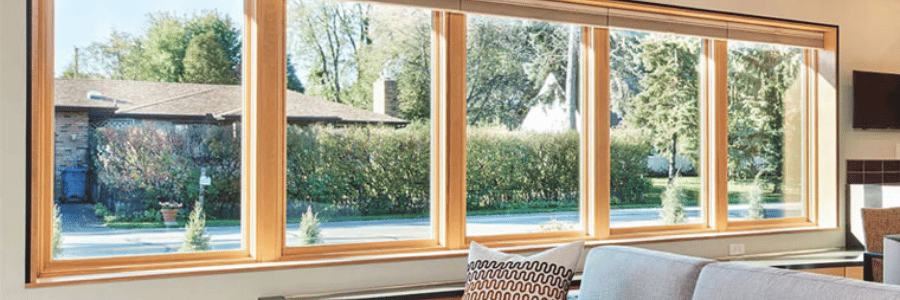
Choosing the Right Window Frame for Your Home
Selecting the right window frame material depends on several factors, including your home’s climate, maintenance preferences, aesthetic style, and budget. Here’s a quick summary to help you make the best decision:
- Vinyl: Great for energy efficiency, low maintenance, and affordability.
- Wood: Ideal for traditional aesthetics and superior insulation but requires more maintenance.
- Fiberglass: Offers durability, energy efficiency, and low maintenance, with a modern look.
- Aluminum: Sleek, modern, and strong, but may need thermal breaks for better energy efficiency.
- Composite: Combines the best of both worlds—wood’s look with synthetic material’s durability.
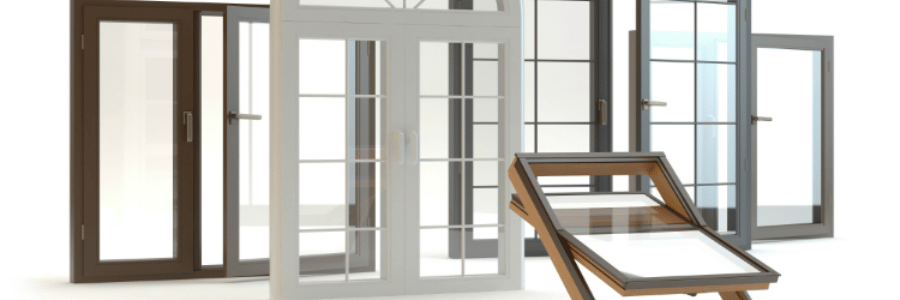
Conclusion
When choosing window frames, it’s essential to balance durability, style, and energy efficiency. Each material offers unique advantages, and understanding your needs and priorities will help you make the best choice for your home. Whether you prefer the timeless elegance of wood, the low-maintenance appeal of vinyl, or the strength of fiberglass, the right window frame will not only enhance your home’s curb appeal but also provide lasting comfort and performance for years to come.

